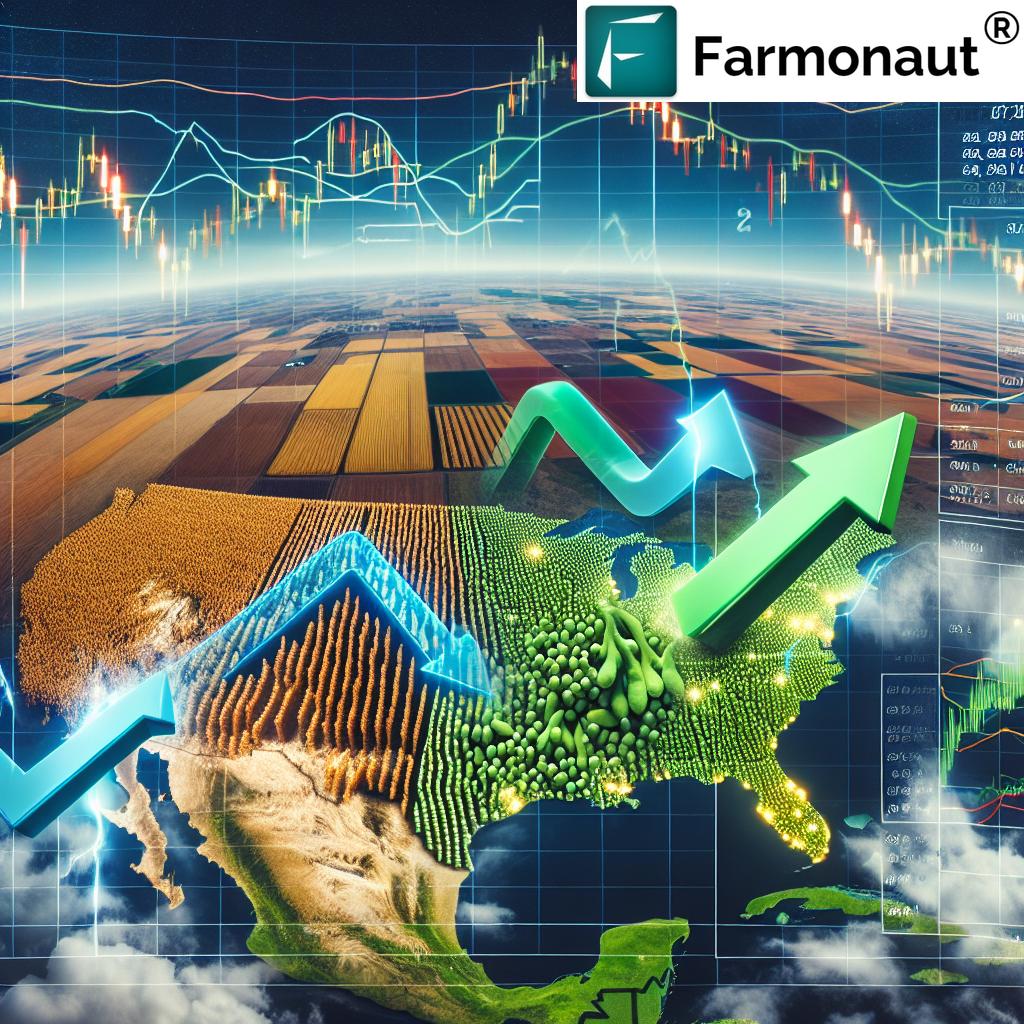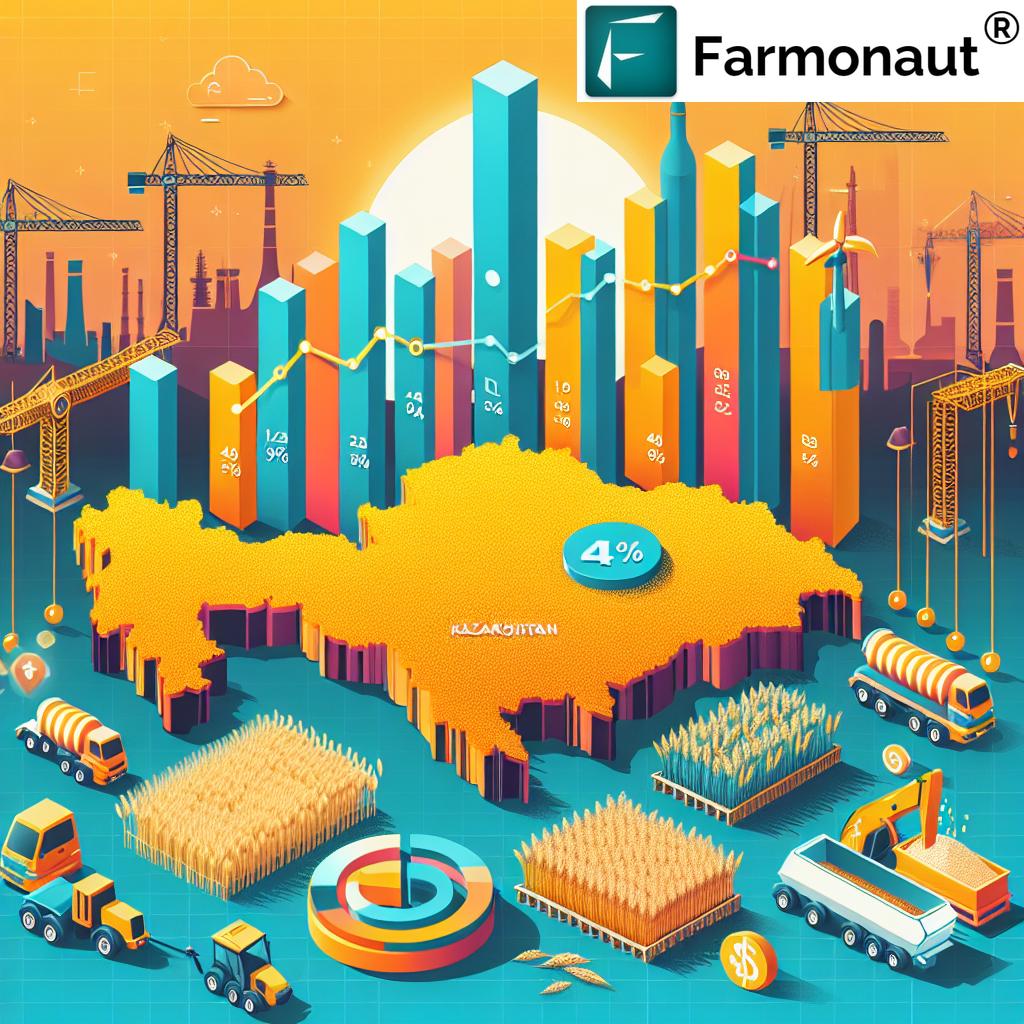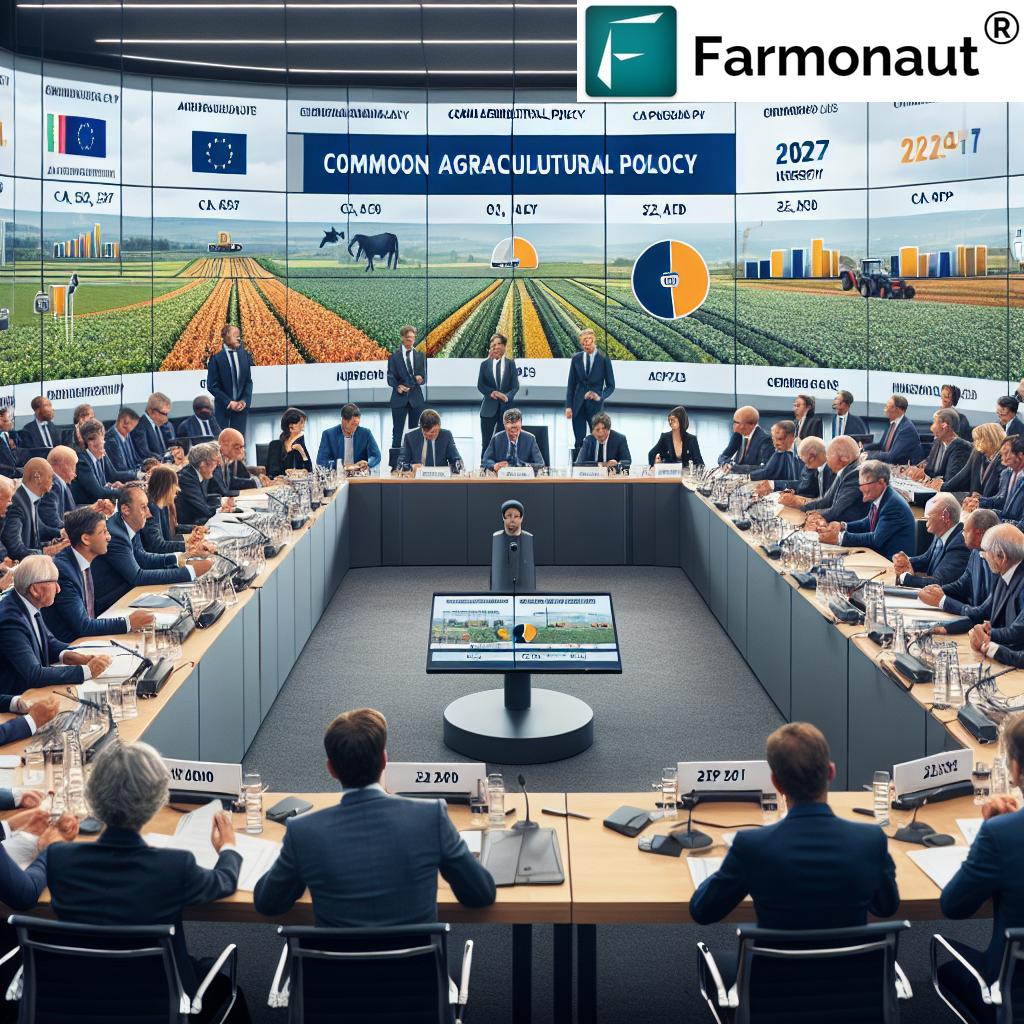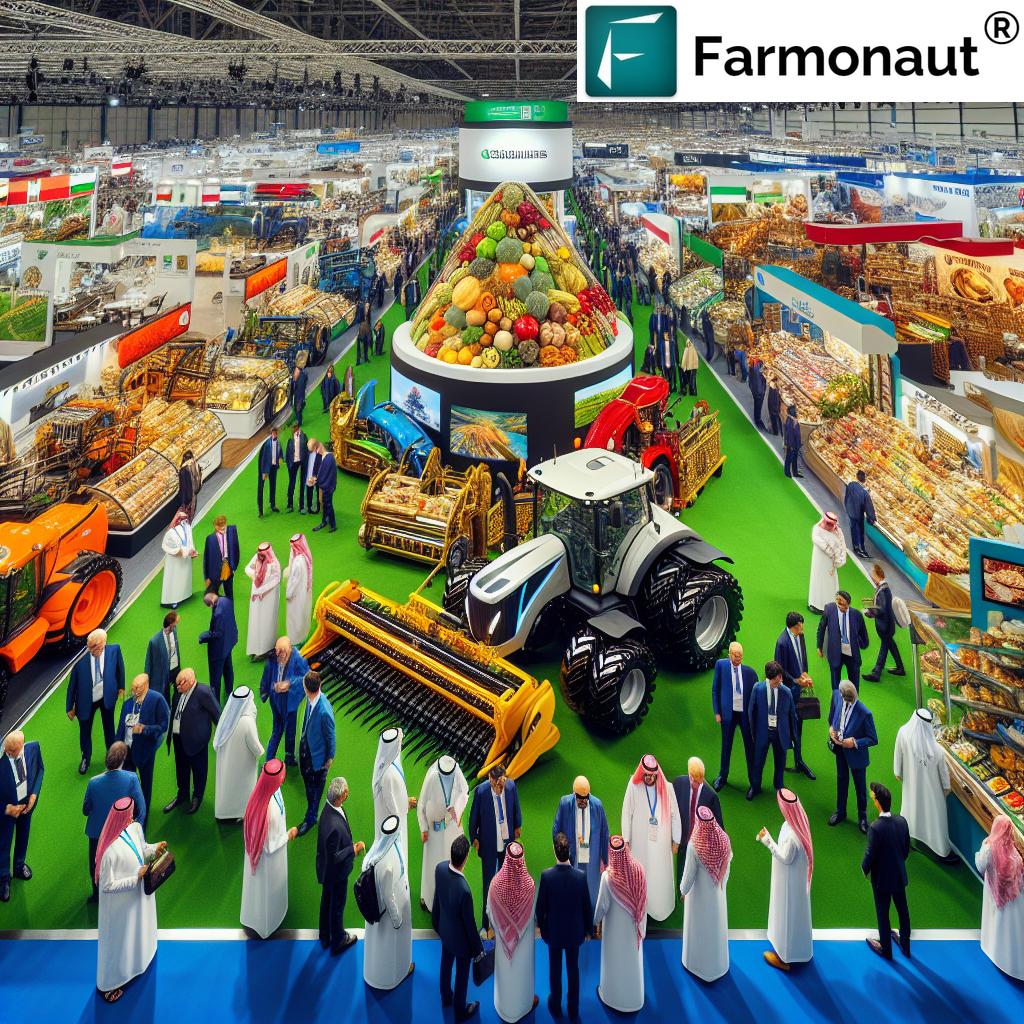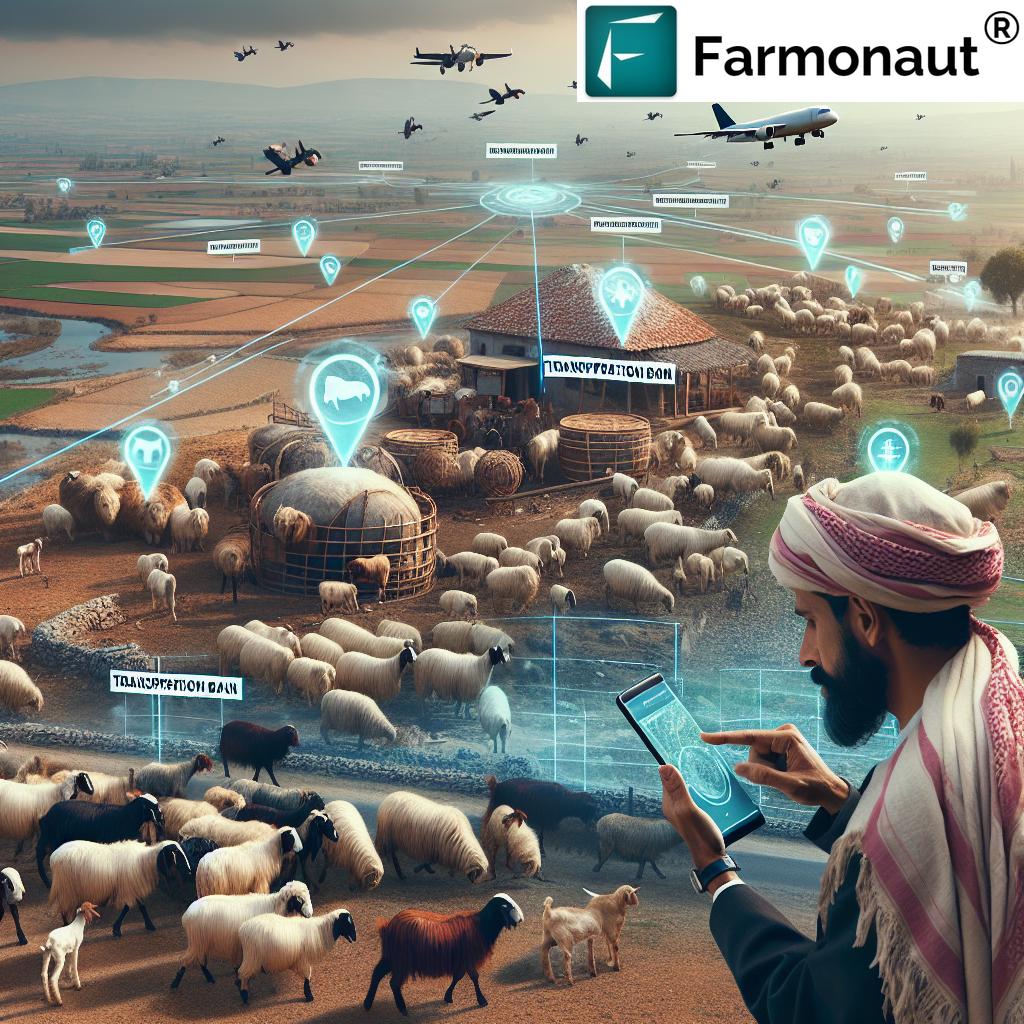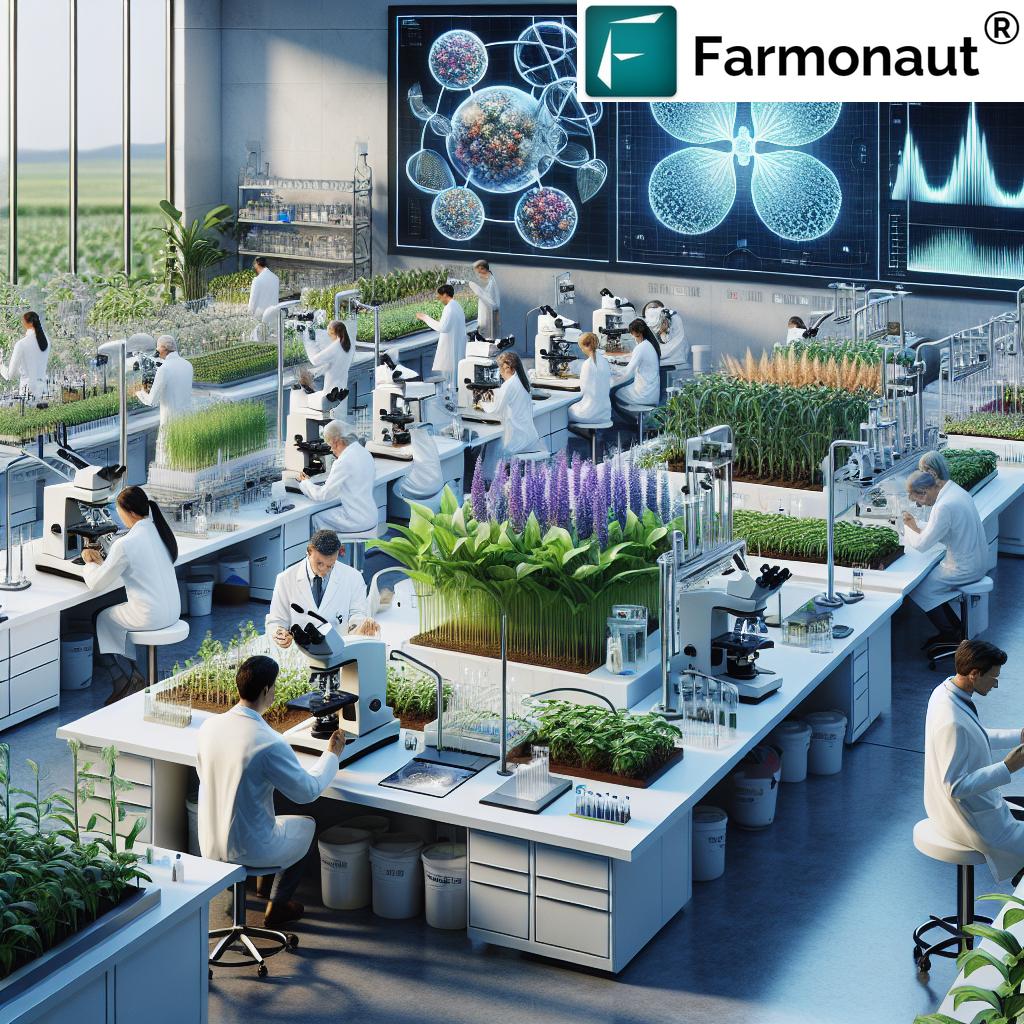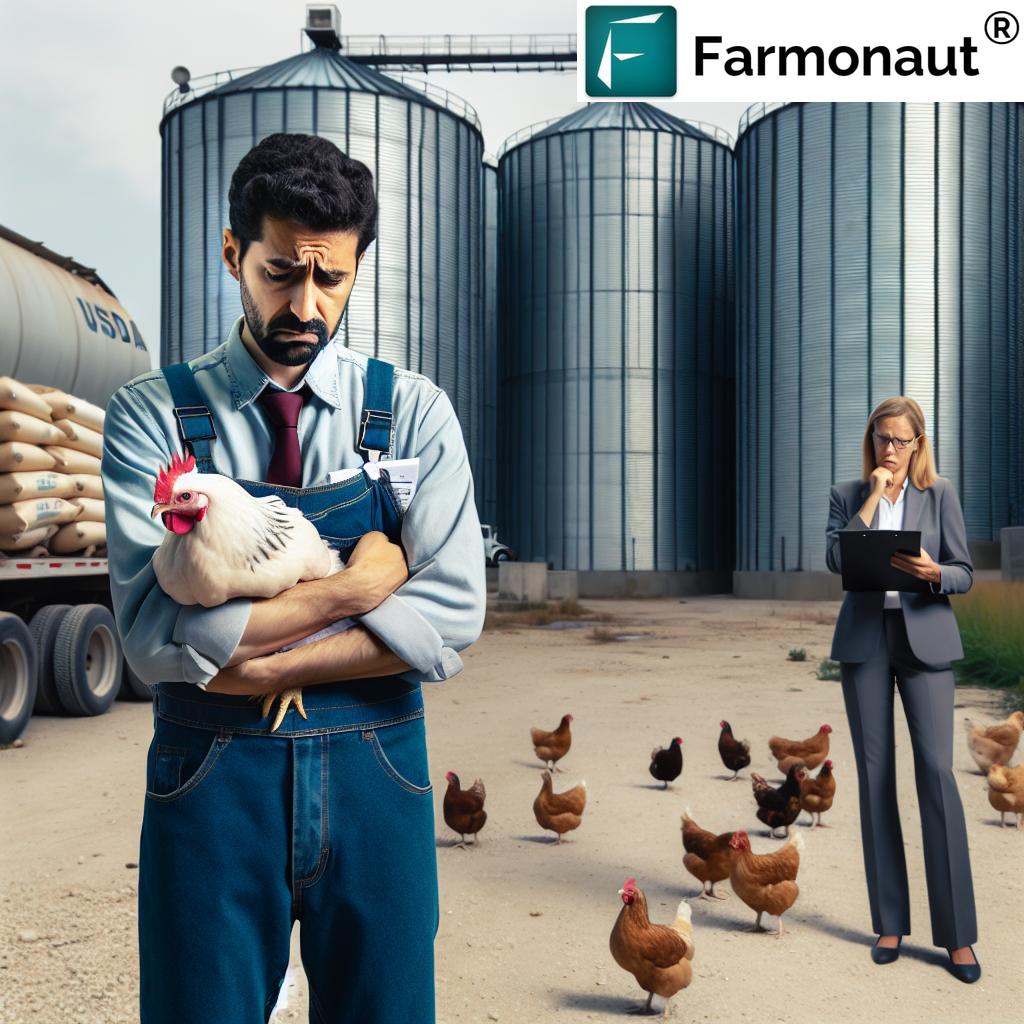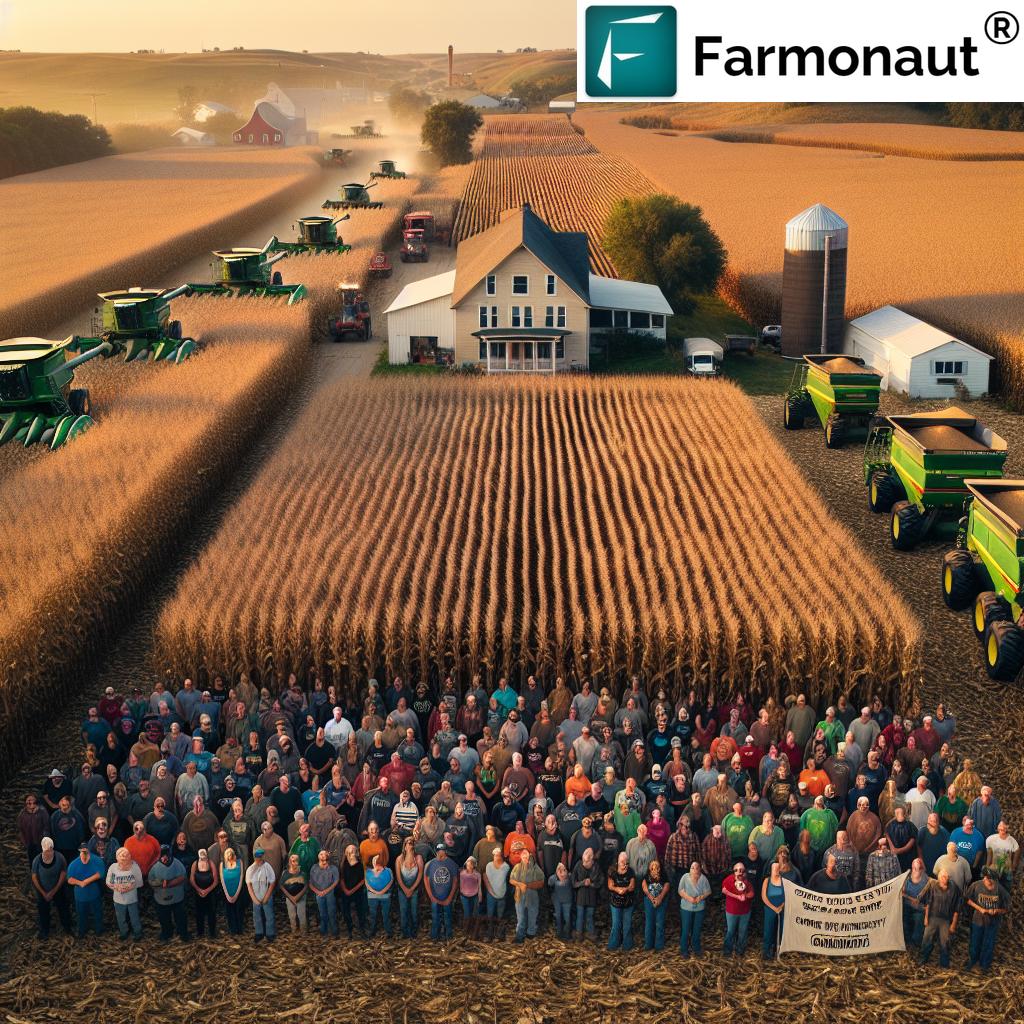Revolutionizing EU Farming: Christophe Hansen’s Bold Vision for Sustainable Agriculture Ignites Debate

In a groundbreaking development that’s sending ripples through the European agricultural landscape, Christophe Hansen, a 42-year-old farmer’s son from Luxembourg, has emerged as a frontrunner for the position of EU agriculture commissioner. This potential appointment has ignited a fierce debate about the future of farming in Europe, pitting traditional agricultural practices against the urgent need for sustainability.
The Rise of Christophe Hansen
Hansen’s journey to the forefront of European Commission agriculture policy is as fascinating as it is controversial. Backed by the center-right European People’s Party, which has positioned itself as a champion of farmers in the recent European election, Hansen brings a unique blend of agricultural heritage and political acumen to the table.
- Former European lawmaker specializing in trade issues
- Well-known and respected figure in EU political circles
- Strong advocate for balancing farmer interests with environmental concerns
As the potential Christophe Hansen agriculture commissioner, he faces the daunting task of realizing European Commission President Ursula von der Leyen’s promise of a new “vision” for EU agriculture within a mere 100 days of taking office.
The Challenge Ahead: Balancing Interests
The path to a sustainable and prosperous European farming future is fraught with challenges. Hansen must navigate the complex web of interests that define the EU agricultural vision:
- Appeasing the powerful EU farm lobby, which has already voiced opposition to proposed policy changes
- Addressing concerns from the food industry about the balance between farm and fork in policy decisions
- Reconciling environmental goals with agricultural productivity
- Maintaining the momentum of the Green Deal while addressing farmers’ economic concerns
These challenges underscore the complexity of European farming policy reform and the delicate balance Hansen must strike to succeed in his role.
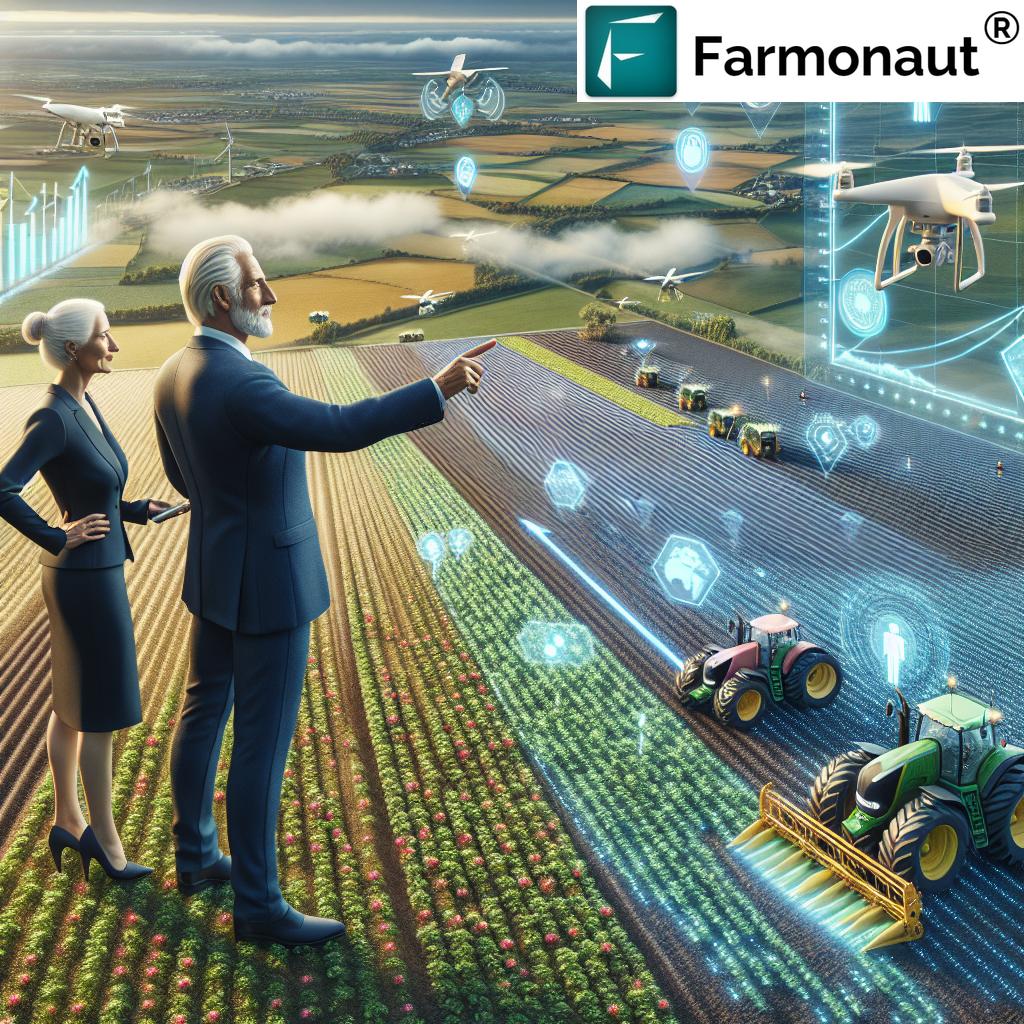
The Green Deal and Agriculture: A Contentious Debate
At the heart of the Green Deal agriculture debate lies the question of how to transition European farming towards more sustainable practices without compromising food security or farmer livelihoods. Hansen’s approach to this issue will be crucial in shaping the EU sustainable agriculture vision.
Key aspects of the debate include:
- Reduction of pesticide use and promotion of organic farming
- Implementation of precision agriculture technologies
- Balancing biodiversity conservation with agricultural productivity
- Addressing the carbon footprint of the agricultural sector
For farmers looking to embrace sustainable practices, tools like Farmonaut’s satellite-based crop monitoring can be invaluable. This technology helps optimize resource use and reduce environmental impact.
Sustainable Food Systems: A Policy Imperative
The concept of sustainable food systems is central to the EU’s agricultural future. However, Hansen’s decision to shelve the idea of a comprehensive sustainable food systems law has raised eyebrows among environmental groups and some policymakers.
This move highlights the ongoing tension between:
- Short-term economic interests of farmers
- Long-term environmental sustainability goals
- Consumer demands for affordable, high-quality food
- The need for a resilient and adaptive agricultural sector
As the debate unfolds, it’s clear that innovative solutions will be needed. Farmers and policymakers alike can benefit from data-driven insights provided by platforms like Farmonaut’s Satellite Weather API, which offers crucial information for agricultural planning and risk management.
Luxembourg’s Influence on EU Agricultural Policy
Hansen’s roots in Luxembourg farming policy bring a unique perspective to the EU stage. Luxembourg, despite its small size, has been at the forefront of implementing sustainable agricultural practices, potentially offering a model for broader EU reforms.
Key aspects of Luxembourg’s approach include:
- Strong support for organic farming
- Emphasis on local food production and short supply chains
- Integration of technology in farming practices
- Balancing agricultural productivity with environmental conservation
This experience could prove invaluable as Hansen navigates the complexities of EU-wide policy implementation.
The Role of Technology in Sustainable Agriculture
As the EU grapples with the challenge of sustainable agriculture, technology is emerging as a crucial tool. Platforms like Farmonaut offer farmers the ability to monitor crop health, optimize resource use, and make data-driven decisions.
These technological advancements could play a significant role in achieving the EU’s sustainability goals while maintaining agricultural productivity.
The Road Ahead: Challenges and Opportunities
As Christophe Hansen prepares to potentially take on the role of EU agriculture commissioner, he faces a landscape fraught with challenges but also ripe with opportunities. The coming months will be crucial in shaping the European Commission agriculture future.
Key areas to watch include:
- The development of a comprehensive EU sustainable agriculture vision
- Negotiations with the EU farm lobby and environmental groups
- Implementation of technological solutions in farming practices
- Balancing the needs of small-scale and large industrial farms
- Addressing the impacts of climate change on agriculture
For those interested in staying informed about these developments, resources like the Farmonaut API Developer Docs provide valuable insights into the intersection of technology and agriculture.
Conclusion: A Pivotal Moment for European Agriculture
The potential appointment of Christophe Hansen as EU agriculture commissioner marks a pivotal moment in European farming policy. His vision for sustainable agriculture, rooted in his experience as a farmer’s son and shaped by Luxembourg’s progressive policies, has the potential to revolutionize the sector.
However, the path forward is not without its challenges. Balancing the interests of farmers, environmentalists, consumers, and policymakers will require skill, diplomacy, and a commitment to innovation. As the debate unfolds, it’s clear that the decisions made in the coming months will shape the future of European agriculture for years to come.
As we await the outcome of the commissioner interviews on November 4th, one thing is certain: the future of EU agriculture hangs in the balance, and all eyes are on Christophe Hansen to see if he can deliver a vision that truly revolutionizes European farming.






